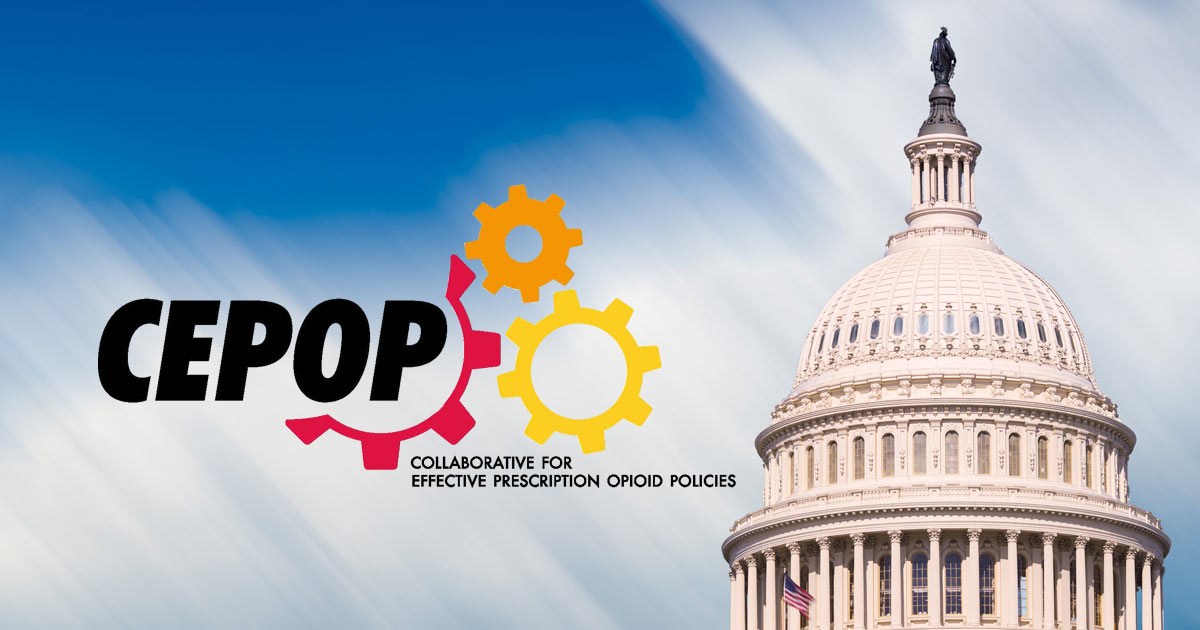FDA Announces Labeling Changes for Opioid Medications
On April 13, 2023 the Food and Drug Administration announced updates for safety label changes for opioid pain medications. The new requirements will encompass both immediate and extended release opioids, and will outline the risk of opioid-induced hyperalgesia, a condition causing increase in pain, and allodynia, a condition that causes increased sensitivity to pain. Additional drug safety language has been added to the prescribing information in the labels, including language on:
- The risk of overdose increases as the dosage increases for all opioid pain medicines;
- Not using immediate release opioids for an extended period of time unless a patient’s pain remains severe enough to require them and alternative treatment options continue to be inadequate;
- Acute pain conditions treated in the outpatient setting requiring no more than a few days of an opioid pain medicine; and
- Recommendations to reserve extended release opioid pain medicines for severe and persistent pain that requires an extended treatment period with a daily opioid pain medicine and for which alternative treatment options are inadequate.
These updates are part of the FDA’s Overdose Prevention Framework and are intended to further tamp down on opioid prescriptions when safer effective options are available.
Articles & Resources
FDA – FDA Updates Prescribing Information for All Opioid Pain Medicines to Provide Additional Guidance for Safe Use
Reagan-Udall Foundation, FDA, and SAMHSA Hosting “Considerations for Buprenorphine Initiation and Care”
The Reagan-Udall Foundation, the Food and Drug Administration (FDA), and the Substance Abuse Mental Health Services Administration (SAMHSA) will host a two-day virtual public meeting. The event will review and discuss experiences, strategies, and best practices for buprenorphine initiation, treatment management, and care continuity. The meeting will include presentations from members of impacted communities, individuals with OUD, healthcare providers, researchers, federal partners, and harm reduction programs. The two-day event will be held May 10, 2023 from 1:00-4:45 PM EST and May 11, 2023 from 1:00-4:30 PM EST. Registration information can be found here.
Articles & Resources
Reagan-Udall Foundation for FDA – Consideration for Buprenorphine Initiation and Maintenance Care
White House Announces Strengthened Approach Against Illicit Fentanyl Supply Chains
On April 11, 2023, the White House announced its updated strategy to combat the illicit fentanyl supply chain, which included micro- and macro-level approaches to addressing issue. The plan includes the Administration partnering with the United Nations Commission on Narcotic Drugs to build an international coalition to prevent, detect, and disrupt the supply chain. The plan would also improve information sharing among U.S. law enforcement and intelligence agencies, such as tracking pill presses and die molds, increased bulk cash seizures, and better tracking of precursor chemicals. Additionally, the Administration wishes to strengthen private sector partnerships through education, global engagement, and mutual support. The point most discussed by the media has been increased sanctions on key individuals, and the Administration’s plan includes working with international partners on illicit finance and anti-laundering efforts. Finally, the Administration would like Congress to permanently schedule illicit fentanyl-related substances as Schedule I. These efforts were included in the President’s FY24 Budget for the Office of National Drug Control Program, with an allotted $46.1 billion to implement.
Articles & Resources
White House Fact Sheet – Biden-Harris Administration Announces Strengthened Approach to Crack Down on Illicit Fentanyl Supply Chains
Lawmakers Introduce STOP 2.0 Bill to Address Illicit Fentanyl Trafficking
Last week, Senators Amy Klobuchar (MN) and Shelley Moore Capito (WV) introduced the Synthetics Trafficking & Overdose Prevention (STOP) 2.0 Act, which builds upon the STOP Act of 2018. The legislation aims to halt fentanyl and other synthetic drugs from being shipped into the U.S. through the mail and would require advanced electronic data (AED) in inbound international packages. STOP 2.0 aims to fills gaps and increases compliance requirements of the 2018 STOP Act and would:
- Create criminal penalties for intentionally misrepresenting a package’s country of origin;
- Put in place a 5-year transition period for waivers to comply with the original STOP Act’s AED, after which the Department of Homeland Security would cease issuing compliance waivers for countries;
- Create new reporting requirements requiring that a) the Customs and Border Patrol publish data on randomized tests of packages entering the country to assess compliance with the STOP Act and b) the Comptroller General develop a report on implementing the STOP Act; and
- Expand collaborative efforts by a) enabling the Department of Homeland Security, the Department of Justice, and the United States Postal Services to enter into public-private partnerships to develop technology and new processes for identifying illicit shipments of fentanyl and other synthetic opioids and b) authorizing the State Department to collaborate with international governments and agencies to create best practices for detecting the concerned shipments.
Articles & Resources
Senator Klobuchar—Klobuchar, Capito Introduce Bipartisan Legislation to Tackle Illegal Opioids Entering the U.S.
What We Read Last Week
Several articles were published last week pertaining to the opioid epidemic, covering a variety of different components of the topic. Links to relevant articles are provided below.
Axios – Pharma Condemns Texas Abortion Drug Ruling
The American Journal of Drug and Alcohol Abuse—Telehealth for Opioid Use Disorder: Retention as a Function of Demographics and Rurality
Boston Globe – More than 700 Overdose Reversal Kits to be Placed in ‘Highly Visible’ Sites Across New Hampshire
JAMA Health Forum – Association of Race with Urine Toxicology Testing Among Pregnant Patients During Labor and Delivery
Politico – GOP Embraces New Foreign Policy: Bomb Mexico to Stop Fentanyl
Psychiatric Times – Cooccurring Substance Use and Eating Disorders
Reuters – Mexican Officials to Hold Talks in U.S. On Fentanyl Smuggling
Roll Call – DEA Proposal Sparks Concerns About Access to Telehealth
STAT—OTC Naloxone is a Baby Step Toward Making the Life-Saving Medication Accessible
White House – Biden-Harris Administration Designate Fentanyl Combined with Xylazine as an Emerging Threat to the United States
Questions about the above content can be directed to [email protected].

